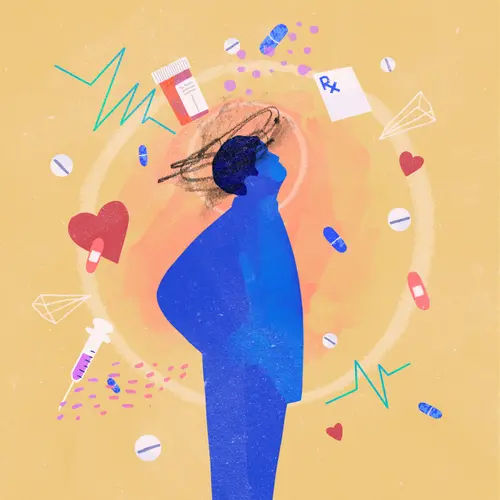This sad, hopeless feeling just can't go on. It's affecting your job, your life. It seems like depression. But could it be something more?
Many people with depression also experience some degree of anxiety - anxiety that goes beyond the typical tension we experience when we face life's challenges. For people with an anxiety disorder, the overwhelming worry and fear is constant - with obsessive thoughts, feelings of panic, trouble sleeping, heart palpitations, cold or sweaty hands.
"Very often, we find that people have more than one condition -- both depression and anxiety disorder," says Charles Goodstein, MD a professor of psychiatry at New York University School of Medicine, with a clinical practice in Tenafly, N.J. "As a matter of fact, it's very hard to find patients who are depressed who don't also have anxiety. It's equally hard to find people with anxiety who don't have some depression."
Mood Disorders Similar to Depression
Indeed, sadness, depression, and anxiety are often triggered by life events - and the symptoms are not easily separated out, says Andrea Fagiolini, MD, a psychiatrist and medical director of the Bipolar Center at the University of Pittsburgh School of Medicine.
"We see this very frequently," he tells WebMD. "Financial, relationship, and family problems - all these can trigger anxiety and sadness, so we consider these feelings to be normal. They are not normal when the feelings are extremely intense, when they impair everyday functioning, affect quality of life. When all that is happening, it becomes difficult to solve the very problems that started the depression."
In addition to anxiety and depression, there might be something else going on -- bipolar disorder. This is a condition that involves shifts in a person's mood from severe depression to manic phases - with soaring highs, restlessness, difficulty concentrating, racing thoughts, impulsive decisions, reckless behavior, and poor judgment. In many cases there is normal mood in between the phases.
Antidepressant Not Always Best
Because of the difficulty in diagnosing these mood disorders, it's important to talk to your doctor candidly about what you've been feeling. It's also crucial that your doctor take time to ask enough questions, Goodstein adds. "Many people go to a general practitioner first. They've been feeling depressed and think they may need an antidepressant. But if that doctor is very busy, he or she can't do much evaluation."
Under those circumstances, an antidepressant is often prescribed - yet that may or may not be the right choice. "Antidepressants are used to treat both anxiety disorders and depression. However, someone with bipolar disorder needs a different set of drugs -- a mood stabilizer and antimanic medication," Fagiolini tells WebMD. There are several types of mood-stabilizing drugs, which include medications like lithium and anticonvulsive drugs such as Depakote or Lamictal.
The danger: "Giving an antidepressant to someone with bipolar disorder could trigger a manic episode," he explains. "Manic episodes can be dangerous, because you have very poor judgment, tend to use more drugs, drive recklessly, spend a lot of money, have much more sex - and have it completely unprotected. There's a higher risk of high-risk behaviors because there is poor judgment."
Treating a Mood Disorder Takes Time
What's most important, psychiatrists say, is to recognize that something is wrong. Then see a doctor regularly.
"It's a good sign if your doctor wants to see you more than once before prescribing something," says Goodstein. "It's better if your doctor wants to see you regularly, rather than prescribe the medication and say, 'check back with me in six months.'"
Because bipolar disorder is condition that is ongoing but not always evident, the National Institute of Mental Health recommends long-term preventive treatment. The institute notes that a combination of medication and psychotherapy works best to keep the disorder under control over time.
With most people, "things are more complicated than they seem on the first visit," Goodstein tells WebMD. "Almost always, there's something more going on, and a doctor just can't know all that in one visit. It's erroneous if they think they can."
It's important to get treated for any mood disorder, because it can affect your own quality of life -- as well as the people around you, Goodstein adds. When you're depressed -- for any reason -- "You don't care about yourself. You don't care about those around you. And often, you don't have the motivation to get help because you feel hopeless," he says. "You might think there's no way to solve your problems. But that's not true. We can treat your depression, so you'll be better able to find solutions to your problems."

